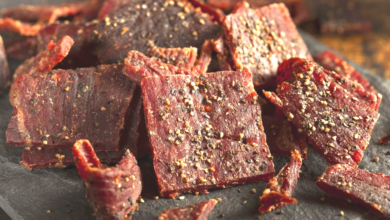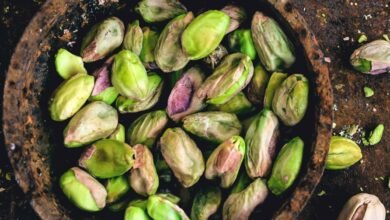A Guide to Following a Vegetarian Diet Plan

Vegetarianism isn’t nearly as uncommon as it once was. About 5 percent of American adults stick to this way of eating, and that number is on the rise, with about 23 percent of adults reporting that they’ve eaten less meat over the past 12 months.
That’s probably because most experts and health organizations agree that eating more plants is a good thing, no matter how strict a vegetarian diet you follow.
Interestingly, vegetarians are inclined to live healthy lifestyles even outside of mealtime. In general, they exercise more frequently and tend to live longer than nonvegetarians.
Because the number of people interested in cutting back on meat is growing, food manufacturers and restaurateurs have started to follow suit. A wealth of vegetarian-friendly options on supermarket shelves and restaurant menus makes being a vegetarian today much easier and more delicious than it has been in the past.
Here, let’s dive into what it means to be a vegetarian and the effect it could have on your health.
What is a vegetarian?
Someone following a vegetarian diet eats meals focused on plants, including nuts, seeds, grains, vegetables, fruits, and legumes.
There are many different types of vegetarians, but the most traditional definition is someone who doesn’t eat meat.
Plenty of reasons exist for why someone might become a vegetarian. Some people decide to forgo animal products because they don’t think it’s ethical to kill animals for food. Others believe a plant-based lifestyle is more healthful, while others may go vegetarian for environmental benefits or religious beliefs.

Types of Vegetarian Diets
A strict vegetarian eats a diet free of all types of meat, including chicken and fish, but there are many versions of a vegetarian diet.
Here are seven:
- Lacto-ovo vegetarians eat both eggs and dairy but no meat, poultry, or fish.
- Lacto-vegetarians eat dairy products but no eggs, meat, poultry, or fish.
- Ovo-vegetarians eat eggs but no dairy, meat, poultry, or fish.
- Pescatarians eat fish but no meat or poultry.
- Semivegetarians don’t eat red meat but do eat chicken and fish.
- Flexitarians stick to a vegetarian diet most of the time but eat meat, poultry, or fish on occasion.
- Vegans, the strictest type of vegetarian, refrain from all animal products and animal byproducts, including dairy, eggs, honey, and things made with gelatin.
Vegetarian Diet Food List: What to Eat and Avoid
As a vegetarian, you’ll avoid meat (and whatever else goes along with the type of vegetarian you’ve chosen to be). Instead, you’ll load up on plant-based foods (ideally, those that are whole and unprocessed).
What to Eat
Grains, nuts, seeds, legumes, vegetables, and fruit are all fair game. You’ll also find that the grocery store is stocked with vegetarian options inspired by meat counterparts—vegetarian burgers, chicken substitutes, and faux ground beef, for instance—though these are less healthy than whole, unprocessed vegetarian foods.
What to Avoid
Strict vegetarians will avoid poultry, fish, and meat, but there’s some flexibility based on the type of vegetarian you decide to be. You’re able to eat eggs as an ovo-vegetarian, for instance, or fish as a pescatarian.
Eating Vegetarian: A 7-Day Sample Menu for Meal Inspiration
Day 1
Breakfast: Oatmeal with a handful of blueberries, almonds, and cinnamon
Lunch: Avocado toast with whole-wheat bread, cherry tomatoes, and feta cheese crumbles
Snack: Apple slices with peanut butter
Dinner: Black bean tacos with shredded lettuce, sauteed veggies, reduced-fat cheddar, and fresh salsa
Day 2
Breakfast: Bran-and-blueberry muffin with low- or nonfat yogurt
Lunch: Bean-and-veggie soup using low-sodium vegetable broth
Snack: Roasted chickpeas made with extra-virgin olive oil and sea salt
Dinner: Caprese sandwich (with tomato; low-fat, part-skim mozzarella; olive oil; and basil) on whole-wheat bread
Day 3
Breakfast: Tofu scramble on a bed of brown rice with sauteed peppers
Lunch: Quesadillas with low-fat, part-skim cheddar cheese; black beans; and sweet potatoes
Snack: Mixed fruit bowl
Dinner: Vegetable stir-fry with tempeh on a bed of brown rice
Day 4
Breakfast: Strawberry smoothie made with kefir
Lunch: Mixed green salad with crispy chickpeas and slices of grilled portobello mushrooms
Snack: Carrot sticks and hummus
Dinner: Quinoa bowl with roasted vegetables and kimchi
Day 5
Breakfast: Low- or nonfat Greek yogurt with cinnamon and berries
Lunch: Vegetable and cheese panini on whole-wheat bread
Snack: Kale chips made with extra-virgin olive oil and sea salt
Dinner: Zucchini noodles (“zoodles”) with marinara sauce and low-sodium meatless meatballs (preferably homemade)
Day 6
Breakfast: Overnight oats with walnuts, sliced peaches, and cinnamon
Lunch: Arugula-and-veggie-topped pizza with whole-grain dough and reduced-fat, part-skim mozzarella
Snack: Handful of raw, no-salt almonds
Dinner: Portobello mushroom sliders with romaine, Swiss cheese, and tomato on whole-wheat buns
Day 7
Breakfast: Green smoothie
Lunch: Veggie burger on a whole-wheat bun
Snack: Veggie spring rolls
Dinner: African curry with rice and seitan.
Desserts are naturally vegetarian, so whatever you enjoy now will likely work on a vegetarian diet, too.
Potential Health Benefits of a Vegetarian Diet
Well-planned vegetarian diets are usually rich in fiber and lower in calories and fat than a nonvegetarian diet.
Eating this way, whether for a few meals or decades, can be beneficial to your health in loads of ways:
- Heart Help Without meat, your diet will be lower in saturated fat and cholesterol, which ends up reducing your risk of heart disease. Vegetarians tend to have lower levels of LDL (“bad”) cholesterol. Sticking to a vegetarian diet can reduce the risk of cardiovascular disease mortality and heart disease by 40 percent.
- Hypertension Management Eating a plant-based diet may help lower high blood pressure.
- Improve Insulin Response Going vegetarian won’t cure type 2 diabetes, but it may help stabilize your blood sugar and make your body more responsive to insulin, as long as you’re eating a balanced diet. It could also reduce your risk of other complications related to type 2 diabetes.
- Cancer Protection Vegetarians have lower cancer rates than nonvegetarians, suggesting an association between following a plant-based diet and a lower risk of certain types of cancer.
- Lower Metabolic Syndrome Risk Some studies suggest that people who fill their plates with plants also tend to have lower rates of metabolic syndrome, a group of risk factors that may raise your risk of chronic conditions, including type 2 diabetes and heart disease.
All of these health benefits boil down to one major one: being a vegetarian may help you live longer.
Research shows that there’s a correlation between health benefits and how strict a vegetarian diet one follows, with strict vegetarians (aka vegans) seeing the greatest health benefits, followed by Lacto-vegetarians, pescatarians, and nonvegetarians.
Possible Weight Loss Effects of a Vegetarian Diet
Following a plant-based diet usually means you’ll take in fewer calories overall (as long as you’re not swapping meat for too many unhealthy simple carbs like white bread and pasta). Research has found that, in general, the less meat a person eats, the lower their body mass index.
With a diet filled with vegetables, whole grains, and legumes, vegetarians also take in a whole lot of fiber. Fiber helps promote fullness and can lead to weight loss if you take in fewer calories overall.
One study involving people with type 2 diabetes found that following a vegetarian diet was almost twice as effective at helping with weight loss as following a low-calorie diet.
To see these weight loss benefits, vegetarians need to stick to healthy whole foods and avoid overeating, says Julieanna Hever, RD, the Los Angeles-based author of Plant-Based Nutrition (Idiot’s Guides). “With all of the new animal-free junk food on the market, it’s become increasingly easier to eat hyper-palatable [vegetarian] foods to the point of weight gain,” she says.
Drawbacks of a Vegetarian Diet
Experts recommend meeting with a registered dietitian who can help you put together a meal plan to make sure you’re sourcing enough appropriate nutrients and sticking to a reasonable amount of calories each day.
A dietitian can also advise on foods to eat or supplements to take to avoid deficiencies.
Vegetarians are at risk of being deficient in a handful of nutrients; these vegetarian-friendly ideas will help you get your fill:
- Protein is found in nuts, peanut butter, grains, legumes, eggs, dairy, tofu, tempeh, and seitan.
- Iron is found in legumes, spinach, whole grains, fortified cereals, seeds, and tofu.
- Calcium is found in milk, yogurt, cottage cheese, and fortified nondairy milk.
- Zinc can be sourced from legumes, fortified cereals, nuts, seeds, dairy, and nutritional yeast.
- Vitamin B12 is found in dairy, fortified breakfast cereal, soy milk, eggs, and nutritional yeast.
- Vitamin D is most easily found in cow’s milk.
Because vegetarians don’t usually eat as many calories as nonvegetarians, it may not be a good diet for children and teens who are still growing.
Consult your pediatrician to be sure.
Vitamin D Supplements for Vegetarians
Because of the potential deficiencies, vegetarians may want to consider supplements. Most importantly, a vitamin D supplement can be helpful if you’re not sourcing enough of the vitamin from sunlight or fortified foods.
Potential Challenges of Being a Vegetarian
The biggest challenge many vegetarians run into is resisting meat-filled foods they’ve enjoyed in the past, such as turkey at Thanksgiving or a hot dog at a baseball game. You’ll likely need to drastically rethink your meals. “Most of us were raised with meat at the center of the plate, and having to recalculate that requires a transition period,” Hever says.
Dining at restaurants can also be a challenge, though more and more eateries now have veg-friendly items such as veggie burgers on their menus. Ordering a salad plus an appetizer without any meat or fish is also a good bet. Pescatarians, as well as people like pollotarians, have an easier time dining out because fish is readily available on many menus.
6 Beginner Tips for Vegetarians
Michelle Jaelin, a registered dietitian with NutritionArtist.com in Hamilton, Ontario, says that going vegetarian can be healthy—as long as you know what you’re doing. The Academy of Nutrition and Dietetics agrees and emphasizes that a vegetarian diet needs to be appropriately planned.
Here are some ideas for how to do so successfully:
- Cut meat from your diet gradually. Rather than going vegetarian overnight, try adding a few meatless meals to your menu each week until you slowly phase out meat.
- Work with a professional. Be aware of the potential nutritional deficiencies and plan your meals accordingly with help from a registered dietitian (you can find one at EatRight.org). “With all drastic dietary changes, there are health risks,” Jaelin says, adding that it’s important to pay close attention to those potential deficiencies.
- Meal prep! Choose your meat-free foods wisely and keep your fridge stocked with healthy vegetarian options. Meal prep by chopping up vegetables to toss in a salad or making batches of quinoa or farro to have on hand is also a good idea.
- Experiment with different flavors. Try out different spices and seasonings to make your meals interesting.
- Make small tweaks to your favorite dishes. If you’re feeling stuck, try to put a vegetarian spin on your favorite meals. For instance, try vegetarian chili filled with beans instead of chili made with ground beef.
- Source new recipes. Hever suggests referring to websites, cookbooks, and social media to find recipes you love. Then tweak them and add them to your weekly menu. “It becomes second nature rather rapidly,” she says.
Conclusion: Beyond the Plate
Adopting a vegetarian lifestyle goes beyond what’s on your plate. It’s about making conscious choices that align with your values and contribute to a healthier planet. By following this detailed guide, you’re not just changing your diet; you’re embracing a transformative way of living.
FAQs (Frequently Asked Questions): Your In-Depth Guide
Q1: Can a vegetarian diet provide enough protein?
Absolutely. We delve into the variety of plant-based protein sources and offer a detailed guide on meeting your protein needs through a vegetarian diet.
Q2: How can I ensure sufficient iron and calcium intake without meat?
Explore strategic food pairings, absorption-enhancing practices, and a comprehensive list of plant-based options to ensure optimal iron and calcium levels.
Q3: Is B12 supplementation necessary for vegetarians?
Unravel the complexities of B12, understand the importance of supplementation, and explore fortified food options to meet your B12 requirements.
Q4: Can children thrive on a vegetarian diet?
Raising vegetarian children involves careful planning. We provide an extensive guide, addressing nutritional needs and ensuring healthy development.
Q5: How do plant-based athletes excel in their performance?
Delve into the success stories of plant-based athletes, debunking myths and offering insights into achieving peak performance on a vegetarian diet.
Also read: https://www.healthevoke.com/boost-your-mood-ways-to-raise-serotonin-levels/











